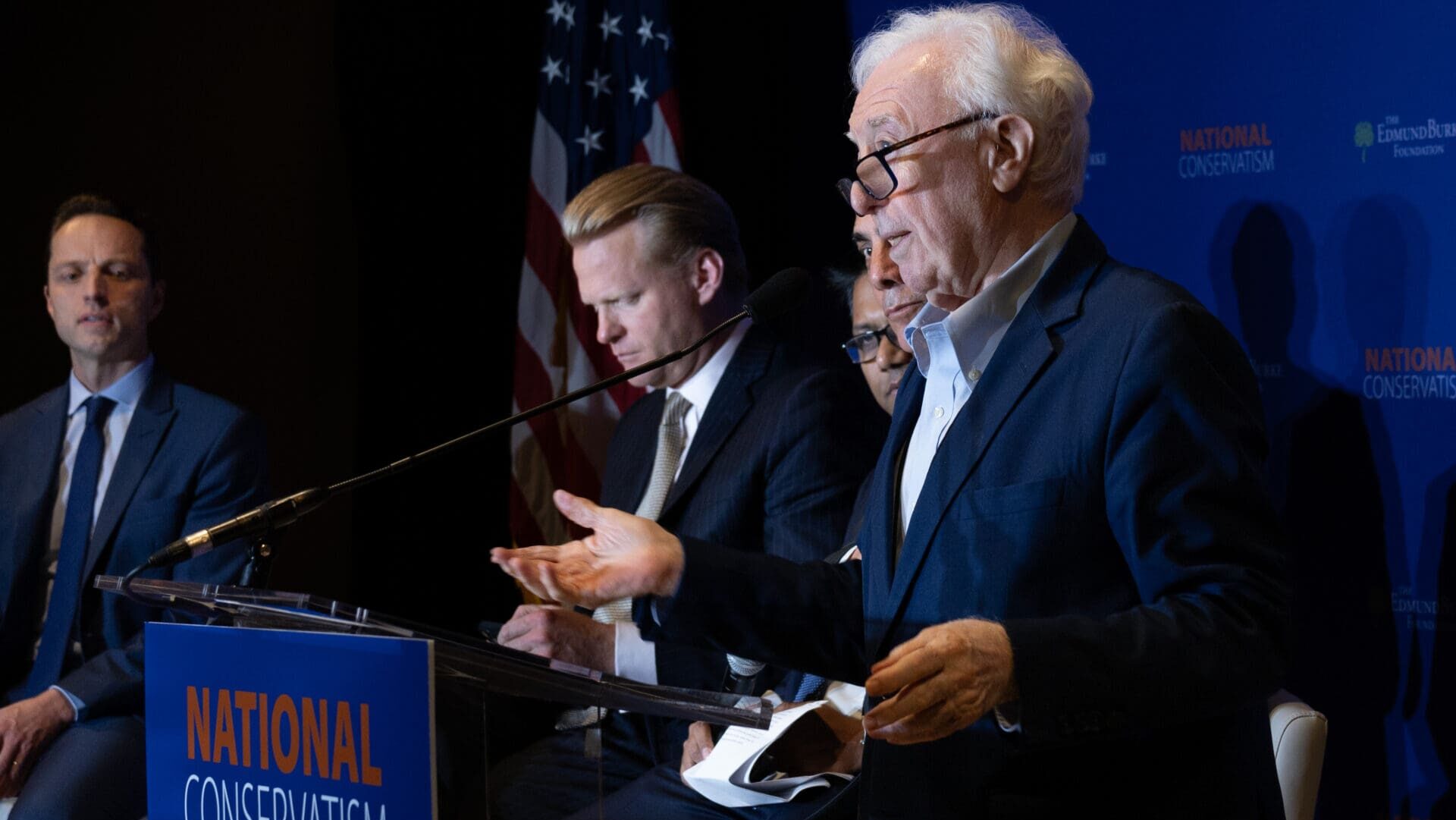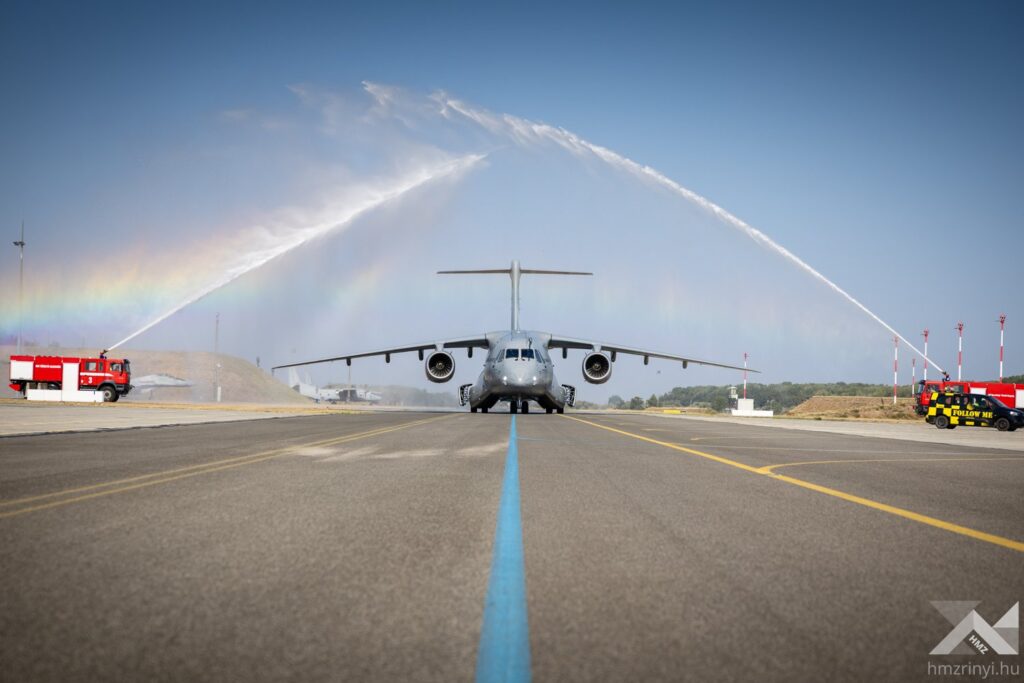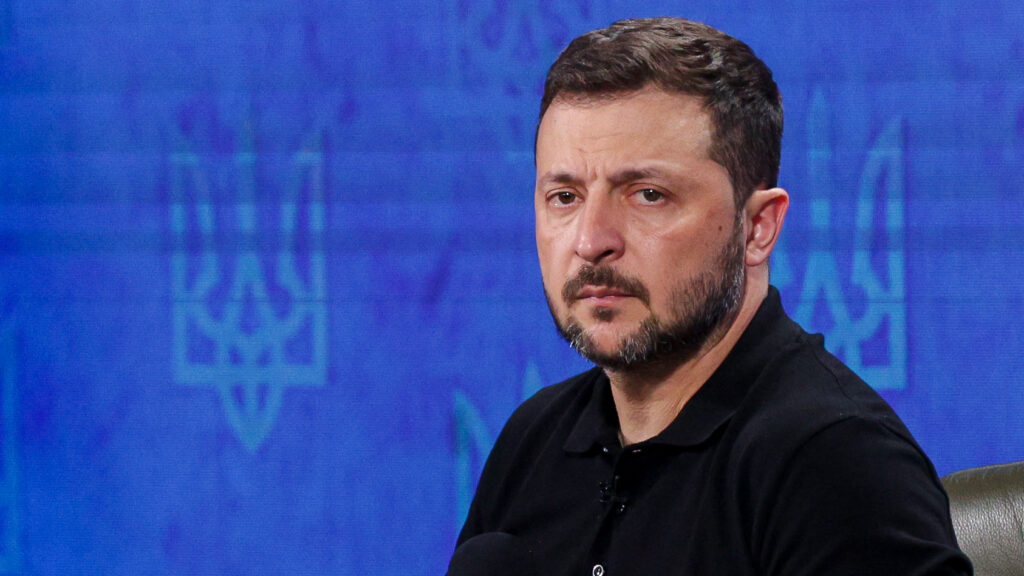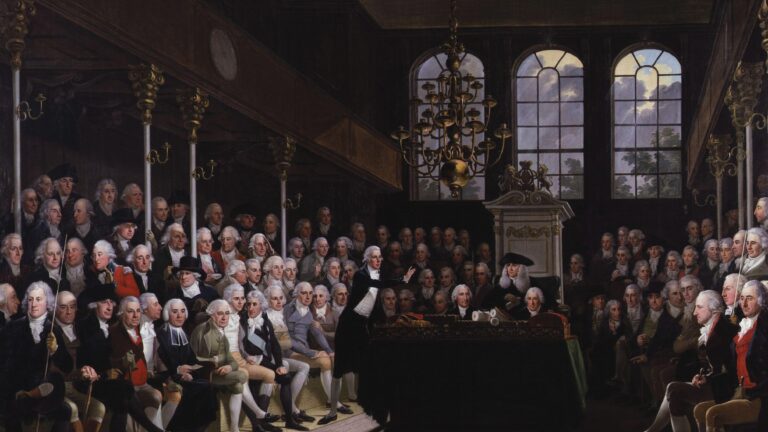Danube Institute President John O’Sullivan was the first to deliver remarks titled ‘Are Europeans Defending a Continent… or an Idea?’ at the discussion on the Future of Europe at the 2024 National Conservatism conference in Washington, D.C. His fellow panellists included James Orr, who spoke about ‘Europe After America: From Nato-politanism to National Conservatism,’ Alexandre Pesey, who discussed ‘A Conservative Revolution in France?’ and Sumantra Maitra, whose address was titled ‘Toward a Reformed NATO’.
O’Sullivan gave a fascinating and engaging speech about NATO in relation to Europe, the defence of Europe, the threats to the European continent, and the proposals to offer substitutes for NATO as the sole or primary defence organization for Europe.
The Danube Institute president argued that
NATO, the North Atlantic Treaty Organization, has long been the cornerstone of Western defence strategy.
Since its inception in 1949, it has played a crucial role in maintaining peace and stability in Europe and beyond. However, as we look towards the future, the question arises: should NATO continue to be the primary vehicle of defence? And if so, can it effectively fulfil this role amidst evolving global challenges?
O’Sullivan pointed out that NATO’s achievements from 1949 to 1989 are a testament to its efficacy—founded initially to ‘keep the Russians out, the Americans in, and the Germans down,’ NATO exceeded these expectations.
It not only deterred Soviet aggression but also facilitated Germany’s reintegration into the international community as a democratic nation. The United States, through NATO, established a secure and leading position in Europe, preventing conflicts among Western European nations and fostering a period of unprecedented growth and prosperity. This stability, underpinned by NATO, enabled the creation of the European Union, showcasing NATO’s indirect but profound influence on European unity and economic success.
O’Sullivan indicated that the dissolution of the Soviet Union in 1991 did not diminish NATO’s importance. Instead, it marked the beginning of a new chapter in which it played a pivotal role in stabilizing post-Soviet states. NATO’s expansion eastward, though controversial, was driven by the newly independent states’ desire for security against potential Russian revanchism. These countries pushed for NATO membership to ensure protection and to foster economic and political reforms aligned with Western democratic standards. This period of expansion transformed former Soviet satellites into zones of stability and prosperity, highlighting NATO’s significant role in promoting democratic values and economic development.
Some argue that NATO’s expansion provoked Russian aggression, citing the invasions of Georgia in 2008 and Ukraine in 2014 and 2022. However, O’Sullivan countered this by highlighting that the push for NATO expansion came primarily from the former Soviet states themselves, driven by a legitimate fear of Russian aggression.
The expansion was not an imposition by Western powers but a response to the security needs of these countries.
This perspective underscores NATO’s role as a necessary deterrent against Russian revanchism, highlighting its continued strategic importance in ensuring European security.
Today, NATO faces a complex array of challenges. The rise of China necessitates a rebalancing of US military commitments, potentially reducing the American presence in Europe. The concept of European strategic autonomy further complicates NATO’s role, as it risks diverting resources and attention away from the alliance. Additionally, economic difficulties and political changes within NATO member states pose significant hurdles. Despite these challenges, O’Sullivan argued that US leadership remains indispensable for NATO’s effectiveness. The US must maintain its nuclear umbrella over Europe and commit sufficient troops and resources to uphold its leadership role within the alliance. Without American leadership, NATO’s functionality and efficacy would be severely compromised.
O’Sullivan highlighted the European Union’s pursuit of strategic autonomy as another critical issue. While the idea of the EU taking a more prominent role in its defence is appealing, it lacks the financial and military commitments necessary for such an ambitious role. Recent failures to agree on EU defence bonds highlight the limitations of this approach. Moreover, duplicating NATO functions would be inefficient and counterproductive, especially when more defence spending is acutely necessary. O’Sullivan asserted that NATO remains the best vehicle for European defence, as it has proven its effectiveness over decades and continues to offer a robust framework for collective security.
The ongoing war in Ukraine further underscores the importance of NATO. While there is legitimate debate about the war’s progress and realistic objectives, NATO’s support for Ukraine’s resistance against Russian aggression is crucial. Ensuring Ukraine’s independence and providing the necessary military and economic assistance deprives Russia of a significant strategic advantage and reinforces European security. This scenario demonstrates NATO’s pivotal role in responding to contemporary security threats and supporting member and partner nations in times of crisis.
Returning to the original question of whether NATO be the vehicle of Europe’s defence, O’Sullivan concluded that NATO has a proven track record of maintaining peace and stability in Europe and promoting democratic values and economic prosperity in its member states. Its role in deterring Russian aggression and responding to current geopolitical challenges underscores its continued relevance. However, for NATO to effectively serve as the primary vehicle of defence, it must navigate significant challenges, including the lack of a balanced US military commitment, the inefficacy of European strategic autonomy, and the evolving nature of global threats.
He also underscored that NATO’s success hinges on sustained US leadership, adequate defence spending by European members, and a clear strategic vision that adapts to contemporary security dynamics. With these elements in place, NATO can continue to be the cornerstone of transatlantic security,
effectively defending not only Europe but also the broader principles of democracy and stability
that underpin the alliance. Thus, while challenges abound, NATO has the potential and the historical foundation to remain the preeminent vehicle of defence in an increasingly complex world.








